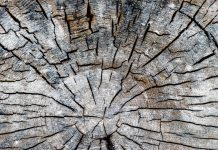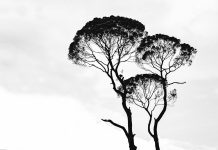(Note: The below text brings closure to the three pieces in Gossamer Buttresses (Grandeur, Misbehavior, and Anthropophagy) . An introductory text to the series can be read here: Clarity.)
*
There is no objective external reason why life should be meaningful. This means that how you pilot your little vehicle of minutes could land you in any of a thousand nowheres.
So, in case you were waiting for the drum roll, for the big reveal, that particular poker hand is soon enough folded. All that pressing and smoothing out. Try to neither a player nor the played be. Particularly from the outside, the drama, if one is permitted a parenthetical side snicker, looks like little more than an extended tussle. We whir about in circles until the bell rings and we must abandon our mobilizing autos of flesh and in fact the entire illuminated area of activity. So, in retrospect, the bumper becomes our most sensitive organ, providing us with contact, presence, and childish satisfaction. The only meaning to be had may be that of having butted up against the world. But who butted? Why one, who never got past point seven? Why the bloodied rush? Well, it’s due to having one’s pants on fire, isn’t it? It is needing the time to make dolls out of our fears and rehearse the mock nightmare. Hoping that the world juts. Hoping we don’t miss it, even as we erase it with a snot-rag of rage and some spit. Even as we butter up the biscuit, to chew just enough to start mouthing off about evil of all things.
Offal and balaclavas, with the lucky advent of a clip to gander at live, but just offsite, perhaps in the ruins of the Sodabread Hotel, where the evocation of pain is ever so more profound, and maybe the reconstruction of one’s own version is possible. Maybe this way something that happened can be owned in a territory where everything is indisputable. Many ones and many zeros move in tides of city-shattering delusion that can be owned when paying attention. To simmer is not to live. Who owns one’s own sensation of owning up, of saying one owns myths, of trusting the pushy tide? How do you create a currency of old resentment minted as shiny trust, always viable in the rushing current? Is reality a market where pain is haggled over, weighed, paid for, packaged, and stocked away, like an explosive for the day wiseguys show up with offerings?
So, what’s a fib if it makes life a little more spicy? If it helps tighten the screws a bit before they are stripped at last?
I am forever forced to watch bystander videos of you chasing yourself through the streets. You who sell belief like flowers at the airport. You won’t convince yourself until everyone else agrees with you. No one is allowed to speak and you must never be silenced. Are these the traditional materials for making an altar? You aspire to someday invent a secret and yet everything is instantly revealed to you.
You hope lying will give you access to novelty. You hope to assassinate trust and steal the body. You are my worthy neighbor and you are entitled to a fair trial. Unfortunately, the beaches of veracity are all underwater.
Mystery is wholly inaccessible to you. You try to watch me over the fence you have put between us. After you have created where you live, you do nothing there but sit on your tricycle and sulk. You are certain someone is having a much better time in their world. Even though you have no experience of any of those worlds, your world includes the sensation of feeling that yours must be the poorest of them all. This makes your music sickly sweet. You have no one to dance to it with. Even though you are everywhere. If fact, you almost have me convinced that I am you. But let that be another truth I successfully evade.
There is something about eating a peach, at its juiciest moment, which allows breathing. Eating it calmly, eating it simply. There is no one outside. Everyone is under threat. But in the cool, shuttered room where the table and the chairs are, the juice of the fruit slips through the shadows and sweetens moments of rest in the dark.
But there is that other darkness of running, that brittle darkness of trying to forget texts circulating in whispers. Texts that say that there are souls out there willing to shoot anyone daring to go out in the street. We are afraid of our streets; we are afraid of the blood in our veins; we make lean-tos out of wishes, but the supports moan and the air is packed tight with noise.
And now, because you asked for it, and you really really did, here is an exclusive interview with Enoch Noggin, the latest woodblock from the mock-robbing-tock crowd.
(He pretends to push his little lacquered forelock, whittled to the front of his face, away from his eyes.)
Interviewer: I thought we might–
EN: Mind if I smoke?
Interviewer: A little.
EN: We can do this another time.
Interviewer: Let’s continue. I thought we might talk about your childhood…
EN: Not exactly terra incognita, if you know what I mean, but as you wish…
I: Is it true that you were carved from a pine log?
EN: If I were you captain, I wouldn’t believe everything I heard. You would be surprised what people will say to get famous. What is true, is that I felt far from being a normal little boy.
I: You feel that you have suffered a great deal?
EN: No. I think the quantity has been pretty standard. The particular events, however, were of a variety of colors and flavors that beggar belief. Hanged from a tree, tried by monkeys, shown death’s doorway, learning about friendship as a donkey, swallowed by a whale and then finally miraculously transformed into a citizen.
I: Then again, you are not exactly famous for telling the truth…
EN: To a T, I’ve told it. By the by, with time it will be clear who has benefitted from conveniently ignoring the surrounding state of things. In my specific case, plain speaking has not served me well.
I: So we should take your words with a drop of sap?
EN: As you wish. It is true that should you give me a couple of glasses of this morning’s dew, before too long I’ll be weeping pinoli all over the floor.
I: And yet people from all over the world will be reading this to find out what you think.
EN: It isn’t what I think that put me on a stage. It is that I have a bright clear timbre when struck.
I: Is it true the inside of your skull is a non-reflective surface?
EN: Well, scarcely any light gets in there. It is only about once a year that some kid tries to shove a candle into my head.
I: You have said that you found dreams liberating.
EN: Well, I can tell you that I woke up and the world had not become more just, there were just more police, patrolling for more crimes.
I: Do you think of yourself as a criminal?
EN: Criminal, monster, freak, whatever you like. Perpetually not in compliance. Let’s just say, I haven’t yet lost myself in decency. And so, I am forever looking for a back door to escape through. Perhaps, I may still wake from this.
The echoes chase each other about, running upon an ongoing hum. Making boys and girls out of harder and harder wood for the last sixty years at least. It is startling how economical it is to be stupid. It takes much less energy than it used to. Stupidity helps you belong to the present moment. It is not as complicated as a rhythm. It is more of a pulse.
The pulse that pushes them on, until everything becomes impulse. They babble-babble over it, dumb as turkeys that drown out in the rain. Only, now that it doesn’t rain, it’s worse. The fires that have spread over the entire west ravage a generation. All the youth we have lost in the flames! Dense and stiff and dry, they never learned to pull up roots and flee. Suddenly there was no time even to text the experience of what it was like to burn. In an instant, they and all of their accounts were gone. Poor kindling!
See each generation cascade down over the jagged remains of its predecessor. How we take care, how we nurture. Then the apple goes bad, the apple splits before it can ripen. The rot was in the wood of the barrel. The child’s insolence weighs heavy on you. But you see it now. How ridiculous the word protect was from the instant you detected it in your mouth. The child’s words are like anchors. They lead you toward stillness, toward silence. A forest of dark trees has grown from your rebukes. No more sowing, no more heroics. The time has come to spare the apples! No one will be saved that way.
So now that you are a wave, you become the you that I don’t know, you become the ranks of strangers whose needs I avoid on the street. We seem to be tired of helping each other. Every day I am less inclined to talk to you. You haven’t even seen me yet. I would be interested in saving you, but only if I am obliterated in the process. I won’t tread water in you, and I certainly won’t navigate you.
You are a fish cast up onto the beach, flipping on one side to see first with one eye and then flapping over to stare with the other as you gasp in the sand. Am not. Are so. Did not. Did too.
We chat over coffee in a café filled with crash dummies in bicycle wear. You thought the crosses on their foreheads meant it was Ash Wednesday. But see how each is a filet, the bones are gone from their souls. Let us hope that it is only that they have let themselves be fooled. Make it a matter of shame on the liar. Blessed be the stupid, for they have left us and are already in heaven and in hell. They have precociously inherited delirium. I say precocious, but the fact is that it has taken steady application to become this stupid. Fear, distrust, and hate are all demanding programs, a kind of extended exercise regime, so like a mineshaft with so little to show in the end. With only that fleeting sense of having belonged, of having been led, so many have fashioned themselves into drones. The blue air around a flower is the deepest sea. Tossed about while someone else huffs and puffs the waves, we try to live anyway. We try to make life small and frivolous. Did everyone have time to weep before being swept away? Did everyone look about? Was everyone kissed? I wanted to be good company for the while it takes.
To always angle toward letting yourself be transformed into an object, passive, pushed forth as insulation for someone else’s walls, part of a row pressing another row in a throng applauding itself. Assuming the role of poison, you celebrate your ability to damage any organism you are ingested by. Spouting gibberish as if it were the monologue of a mannequin, aspiring to the inevitable, at last living the liberation of being used, a stone is surprised that no one hears it. Does finally feeling that you belong, even if only to the tiny tussle for your petty parcel, give you something, at least some agitation to embrace and believe is living?
So many erasures in this draft that the text can no longer be read. Soon, nothing begins to unfold again before no one.
I can sense my frailty praying. I feel the world eaten away around me. I have been cut out from things by clumsy hands and bits of when I have been still cling to my outline. I cave into myself with shame.
I now know that my ninety-four year-old mother’s pubic hair is a peppery color, since they had to lay her bare and spread her legs and insert a tube to get a sample of her pungent urine. As they turned her sideways to clean her and put the new diaper on, my mother stared at me wide-eyed where I sat in the visitor’s chair and passed along handy wipes. My mother’s body is rumpled and lumpy. My flesh is but a subset of that flesh. I may never have the good fortune to be prodded so.
I feel myself rotting. Perhaps some worm has spoiled the meat on my bones. But it is not, nor has it ever been, material. The tissue that curls beneath the flames is what is left of a weave of dreams that had sustained sensation.
I am not someone hiding within me. I am not lurking. I am not some archaeological bone to be dug up with brushes and metaphorical little shovels. I am the refuse, what gets burned away, the white blubber that insulates, slick oil, grease, and fat. I am the belly that hangs out over the belt and is not at ease.
Pale pulp will have eternal life. But we are not impressed by the oily rainbow stain. Its tenacity is not an incident, but rather the clumsy trace of casual contact. Although I may aspire to being made a candle of, even I know it is the wick that brings the flame, while I can only prolong the business without really having been there at all.
There you have it: there to be worked through. Will do for a slap and tickle in a pinch. A tiddle, a squidged wink aloft, and quick as a tipple, we are done for, all runny, consumed.
Later, at an apparently vesper-like moment, maybe hazard a tinkle, to announce all over the glen, like swallows here and there incontinent, a very probable darkening and dissolution thither, on the yon side of the caromed peals and clappers.
To tell is to betray by undressing. Stripped bare of the veil, the bloodied remnant of reality after the epiphany can only stutter in the stunned baby talk of bruises. What’s that? What have you heard? Come closer. Do tell. Do tell. Do unfold a map of battlefields, a sketch of thwarted flight, a station to station network of itinerant unease, the territory of the body as it awakens to decay. The infirm day is navigated by chatter. Chatter is cartilage. Chatter is a fluttering wing moving between nebulous ghost murmurings and the sound of the bugs cracking their shells. Sibilant wisps escape the broken egg of each dream where it rots amidst the shards of what was its kernel.
Cloven of word and yclept with a covering name, nothing here could be expected to grow. The cold wind is more than enough to gird us. And so the bud does not open, the pistil seals and the stamens curl. The call remains in the throat and nothing moves in the direction it is supposed to.
What do you call the backwards of a crop, whose seeds the earth regurgitated, whose fruit only became greener and harder, who knew it must avoid the sun, whose roots could not drink, and only suppurated?
Welcome back to the garden, boys and girls! A galled enclosure, citric and poisonous, clears its insides as if preparing a parade, as if hoisting a flag on one of its brimming towers. These towers walk. Far from sensing that they are habitations, these towers once saw themselves as organisms. But years ago, they entered into allelopathic conversations with the shadowy whispers of weaponry about them. By fives, by tens, by hundreds, like insects, the murky syllables of fear, of envy, of hate, and of cruelty began rising like bubbles through the veins of these towers that became rigid and ceased moving about, now concentrating on this swarming internal movement. Each scurrying syllable is just translucent enough to shimmer in the xylem, indistinguishable from any other mineral in the current. As the colony nests, it incites the towers to lay siege to everything around them. Pestilence and poison become the syntax of all proximity until devastated isolation surrounds each teeming and hollowed-out tower.
Within, great festivities make the towers tremble and totter. After all, life has been encircled anew and is stupefied by its own jibber jabber. Homogeny and unanimity have been accomplished. Clarity’s bliss is about to burst into song. This is how we lie, lying, and lie to our lies, and lie adding lies to what were certainly perfectly good lies but which now have been lied again to lie layer after layer lied on to make new lying towers and new lying streets in landscapes fresh with lies where we as walking lies may stroll lying with the brush that broadly lies over the lies we have buried in the ground, windy and porous with lies, no longer distinguishable from lives. Do tell. Do tell. In the end, telling will turn on the lie. The tale of the lie will swallow it back up. Every liar has a tell. Does water lie, or does it break from its banks? Does fire lie, or does it consume the world and finally itself? Does dust lie, or does it learn to crumble and settle?
How nice it would have been for such music to have sounded over flowers and burgeoning shrubs. But they, like diphthongs and silent consonants, are gone now.
And though it is difficult to imagine that day, soon only the wind will be sounding in the empty towers. And that whistling is ours, and the emptiness is ours, where voices have sanded us clean, where the recipes for greening are gleaned from our open leaves, where our crowns have become sparse, and here we have been left brittle, and ripe for riving.
About the Author

The son of Colombian parents, George Mario Angel Quintero was born in 1964 in San Francisco, California, where he spent his first thirty years. He studied literature at the University of California, and was a Wallace Stegner Fellow at Stanford University. Under the name George Angel, he has published poetry, fiction, and essays in English. Since 1995, he has lived in Medellin, Colombia, authoring seven books of poetry, and three books of theater plays all in Spanish under the name Mario Angel Quintero. He continues to write and publish in both English and Spanish. He is also a musician, a visual artist, and a theater director.












